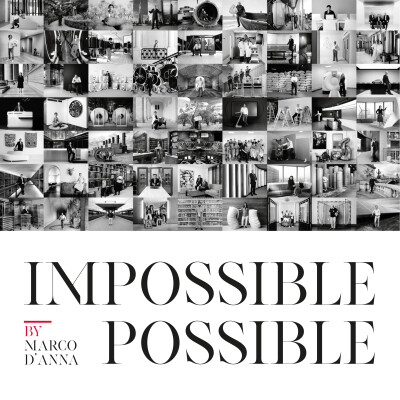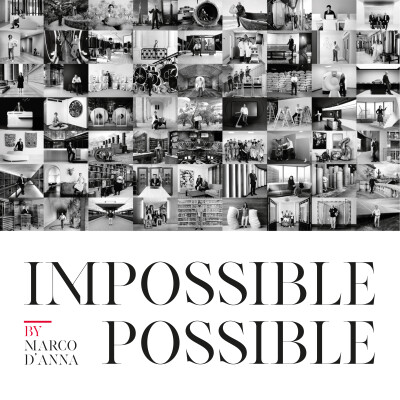Dominique SavinThis is a very funny photo because it's a class photo from back in Morocco. My husband is there and then there's a friend who became my son's godfather because we were all friends with each other. I love the photos from that time. I was born in Nîmes on the first of January 1946. My father was a military doctor, so he moved us around a bit everywhere with him. So we left, the whole family, for Morocco. And at that time, I was in high school there. In Morocco, we formed a large family of French people, meaning that everyone knew each other. So my husband was part of the same group as me, and we met when I was 16. And so we decided to get married. Here we are, the two of us: my husband and myself. I like it. It was in front of the church, I believe. With all the men in tailcoats. I was 20 years old, it was the fulfillment, we had been waiting for each other for four years. My father-in-law was the director of a company, a very large company, because he was a mining engineer. He was a child born in 1912. And when he was born, he weighed eight hundred grams. And his mother, who had already lost one child, said she could not lose another. So she took him, she took this little baby and she put him between two stones. And she warmed him with cotton wool. She heated the stones in the fireplace. Then she put them on her baby and fed him with a dropper. This child, so frail, so small, became an extremely brilliant man. He was an engineer, a divisional director and, above all, the president of the French Coal Mines. And in 1949, he was offered to go to Tunisia and become the director of a mining company called the Royal Asturian Mining Company. And then, in December 1957, he was offered the directorship of the mines in Morocco. So he left, taking his whole family with him, of course. And he was in charge of something very important for Morocco, what we called Moroccanisation. That is, all French companies that were run by French people had to take a Moroccan partner. He worked a lot, a lot for this Moroccanisation. In this family, they had a tradition, meaning that children, starting at 14 years old, had a certain amount of money. They were buying all their things. They were buying their clothes, their school supplies, their books, and all that. Well, it was still a fairly significant amount, they were not poor. So, about when these children turned 16, he opened accounts for all his children at Societe Generale. He opened accounts for everyone. My husband, Michel Savin, was born in 1943 and died in 2013. It was something very difficult. The extraordinary thing was that he was still quite a brilliant man. Every time he came into a company, he would turn it around. And then when he had turned it around well, they would say to him: "Well, there's another one over there that's not doing very well, so we're going to take you to another company. And that's how we went from Dijon to Lyon. And we arrived here. It was in 1981. And then after four years, he said: 'I’m tired of this, I’m starting my own business.' He took with him five people from the previous company who were willing to follow him. And each brought some money. We had mortgaged our house here to be able to start this company. And it was a company that did extremely well. And when he retired, he decided to pass it on to his son and he started six companies himself, I think. My husband would leave in the morning at 7AM and return in the evening at 8PM. So, I took care of everything. The children, school, on Wednesdays, I would take you to the right, I would take you to the left, parent-teacher meetings, all the paperwork, the paperwork of the house, the bank accounts, social security matters, the stories, you see, everything else, that was me. I have always loved everything artistic, so I did a lot of painting. I completely dressed my children, sewing, patchwork. I can't tell you everything I did. In fact, I let my husband do what he wanted to do professionally. And I took care of the rest. But I didn't mind, it was my choice too. Because I could have worked. I studied law. But no, it was a kind of understanding between us. And so that’s it. I had three children. The oldest was born in 1968, that's Guillaume, the one who took over the company. Then I had my daughter, born in 1971. The third child is Raphaël, who came later, eleven years later. I have three children and six grandchildren. I believe that if something happens to one, the others are there to support and help. It has always been that way. And then, as soon as there's something, it's: 'Hello Mum, hello Mum bobo, hello Mum, there's so-and-so who's got this and what should I do? My father-in-law opened the accounts for his children. His children themselves opened accounts for their children. And now, I even have the little ones. The last time, I went to see my banking advisor because I wanted to deposit money for them and we saw that the 7 and 8 year old grandchildren both had accounts at Societe Generale. So, for four generations, we've had Societe Generale as our partner. Here is my grandson Savin and here are my two other grandsons Savin: 'Come say hello my dears.' They love that I tell them stories about what we did, about our whole life. Yes, because we did have moments that were not easy. When my husband started his companies, he was earning next to nothing. We still had to move forward. So there you go, life always gave me the desire to keep going. And my mother always had an extraordinary saying. When things weren't going well, she would say, 'Chin up, let's go, chin up.' And me, I say the same.




